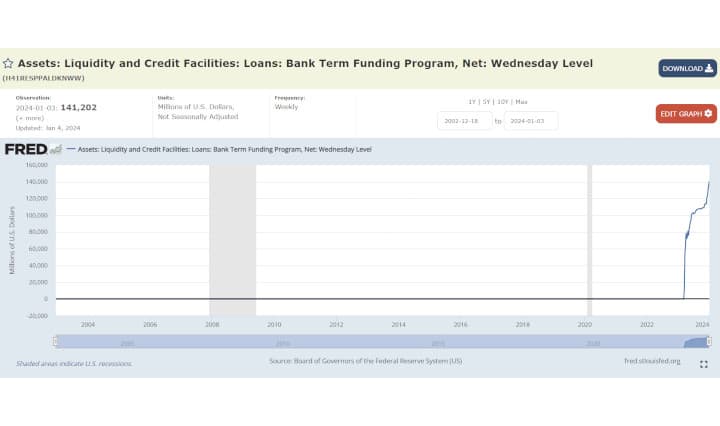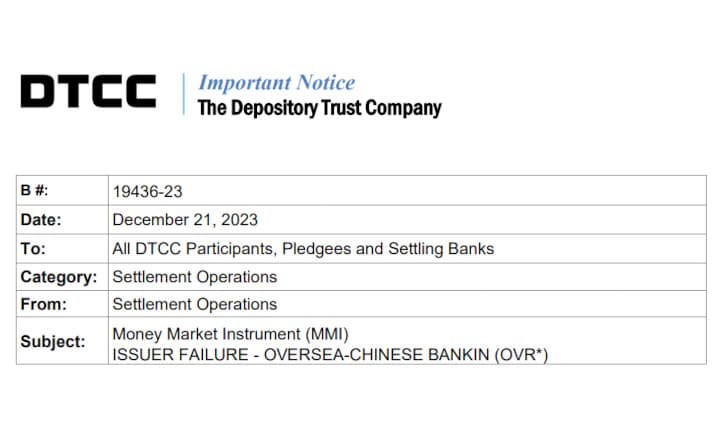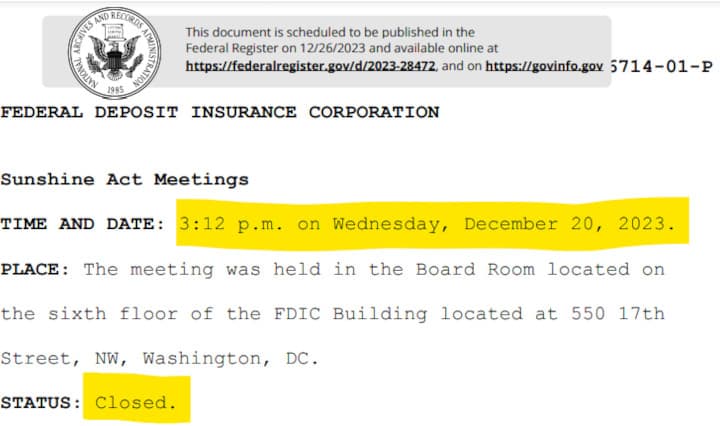FICC - MBS Alert! As of today, J.P. MORGAN SECURITIES LLC’s JSCX Clearing account has no open trade obligations on the books of the MBS Division of FICC. Effective immediately J.P. MORGAN SECURITIES LLC will terminate its JSCX account.

https://www.dtcc.com/-/media/Files/pdf/2023/5/23/MBS1226-23.pdf
From a post earlier today:
JP Morgan securities LCC:
From January 2019 to July 2022, the firm’s financial risk management controls and supervisory procedures were not reasonably designed to prevent certain erroneous orders that exceeded appropriate price or size parameters. Punishment? A $750k fine & censure.

https://www.reddit.com/r/Superstonk/comments/13pncam/jp_morgan_chase_finra_discipline_alert_from/

The firm’s market access controls failed to prevent five erroneous orders routed to exchanges and alternative trading systems:
On January 30, 2019, a firm trader on the Program Trading Agency Desk routed to the market an order to purchase 50,000 shares of an equity security.
- The trader intended to enter a limit price of $268.50, but mistakenly input $286.50.
- The firm received executions with prices over 5% higher than the last execution in the market prior to entry of this order.
- The firm submitted clearly erroneous filings and approximately half of the 50,000-share order (executions above $276.57) were busted.
On July 26, 2019, a client entered a market order to sell 86,500 equity shares instead of the intended limit order.
- A trader accepted the order and routed it to the market.
- The last share price at the time of order entry was $27.23.
- The firm received executions at prices down to $22.25, representing an approximately 18% drop.
On December 19, 2019, instead of entering a limit-on-close order, a firm trader on the Equity Finance Trading Desk erroneously entered a limit order to buy 230,000 shares of an equity security at $154.17.
- The firm routed the order to the market and received executions with prices up to $154.17, which was approximately 3% higher than the prior execution price at order entry of $149.52.
- The firm filed a clearly erroneous submission and all trades above $154.01 were busted.
On March 26, 2020, a client entered a pairs order in the firm’s system.
- While a firm algorithm was handling the order, a control paused the order for manual review.
- After the review and the resumption of the order, the algorithm handling the order did not refresh the market data to account for the pause.
- In less than one minute, the system routed to various execution venues over 80,000 immediate-or-cancel orders, which the execution venues canceled back unfilled because they were priced away from the prevailing market.
On April 22, 2021, a client entered a market order to buy 4,765 equity shares but intended to buy 50 shares at a limit price of $4,765.
- The Electronic Client Solutions Desk received the order and routed it to the market.
- The firm received executions with prices up to $5,077.30, which was approximately 6% higher than the last traded price of $4,799.99.
- The firm submitted a clearly erroneous submission and all trades above $4,903.50 were busted.
The firm’s erroneous order and duplicative order controls were not reasonably designed:
For each of the orders described above, the firm’s trading desks applied fixed single order quantity limits ranging from 100,000 to 9,999,999 shares depending on the specific desk, trader, and/or client involved in each order.
- The firm also applied static single order notional value limits ranging from $25,000,000 to $500,000,000 depending on the specific desk, trader, and/or client. Each of these single order quantity and single order notional value limits applied static limits regardless of security and thus failed to consider the individual characteristics of the security.
- The firm further applied average daily volume limits ranging from 25 to 50 percent based on the specific desk, trader, and/or client.
- With the exception of one desk’s single order quantity control, the firm’s single order quantity, single order notional value, and average daily value thresholds were too large to be effective, and the firm failed to provide any documented rationale for why it set them at such levels.
Moreover, many of the above referenced size controls triggered “soft blocks” when applicable thresholds were reached.
In contrast to a “hard block,” which generally prevents an order from being submitted by automatically rejecting it, a soft block pauses an order until the block is overridden or the order is cancelled back or modified.
- For most of the relevant period, however, the firm’s written supervisory procedures did not address how to handle, document, and review soft block overrides.
- Accordingly, the firm’s controls that relied on soft blocks did not prevent the entry of certain erroneous orders.
- By January 2021, the firm implemented changes to its supervisory requirements relating to soft blocks that included tracking and reviews of soft block overrides and adding compliance trainings and updates to its written supervisory procedures on the handling of soft blocks.
For each of the orders described above, the firm’s trading desks applied single order limit price controls based on fixed percentages away from the National Best Bid and Offer, ranging from three to 15 percent depending on the desk, trader, and/or client involved.
- Like the firm’s size controls, certain limit price thresholds were set too high to be effective.
- In particular, the limit price controls generally exceeded the numerical guidelines for clearly erroneous transactions.
The firm failed to provide any documented rationale for why it set its limit price thresholds at levels greater than the definition of a clearly erroneous transaction.
- Additionally, for the same reasons previously noted above, the firm’s supervisory system for soft blocks was deficient for most of the relevant period.
- In October 2020, the firm began introducing a price control that applied different thresholds to differently priced securities.
Furthermore, the firm did not have a reasonable duplicative order control.
- The firm did apply a risk control that checked orders with the same symbol, side, and quantity.
- This control triggered a hard block if more than 50,000 order messages with the same symbol, side, and quantity were sent within two seconds.
- However, the 50,000-order threshold, which was applied separately to each of the firm’s connections to external venues, was too high to be effective.
- The firm provided no documented rationale supporting why such a high threshold was reasonable.
As of July 2022, the firm had implemented additional controls to prevent the entry of orders that—based on price and/or size of the order relative to the market—could potentially lead to unintended market impact.
Punishment?
TLDRS:
As of today, J.P. MORGAN SECURITIES LLC’s JSCX Clearing account has no open trade obligations on the books of the MBS Division of FICC.
- Effective immediately J.P. MORGAN SECURITIES LLC will terminate its JSCX account.
From January 2019 to July 2022, the firm’s financial risk management controls and supervisory procedures were not reasonably designed to prevent certain erroneous orders that exceeded appropriate price or size parameters.
- Punishment? A $750k fine & censure.
- Is this account closure connected to this FINRA discipline?

